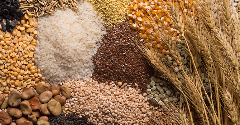News
Mainstream trends transforming the sports nutrition market
9 May 2018Mainstream consumers have become more interested in sports nutrition, bringing better flavour and more diverse ingredients to the sports nutrition sector.
European consumers are living longer, many have become more interested in healthy lifestyles, and endurance sports like marathon running, cycling and triathlons have become increasingly common. The knock-on effect for the sports nutrition sector is a broader range of consumers, from amateur athletes looking to fuel their exercise or improve recovery, to more general consumers seeking a protein or energy boost.

Sports nutrition companies increasingly are breaking the market down into demographics, with products that focus on healthy aging, sporty teens or active women, for example. Boundaries have also blurred between specific sports nutrition products and those intended for general, everyday consumption, such as protein-fortified pancakes, smoothies and cereals that have escaped the supplements aisle to be found alongside mainstream packaged foods.
Beyond whey- and soy-based protein powders, a growing number of more palatable options like bars, shakes and drinks are based on plant proteins like pea, hemp or flaxseed.
While 80% of the sports nutrition category is still focused on protein, according to Euromonitor International, other ingredients are also coming to the fore as the sector has moved to the mainstream. Probiotics are among the ingredients making their way into protein products, a trend that Mintel highlighted in its Global Food & Drinks Trends report in 2016. Probiotics company Ganeden, for example, has said that more than half of all probiotic products launched with their partners in 2017 were protein-based.
Hardcore gym-goers and athletes have always been more results-driven than general consumers, who tend to focus on taste and cost ahead of nutritional benefits, according to the International Food Information Council. Therefore, one of the biggest effects of sports nutrition entering the mainstream has been improved flavour.
Ingredients companies have collaborated to ensure functional sports products taste as good as possible, thereby extending their appeal. At Hi Europe 2016, for instance, Carbery showcased beverages and snacks made with its latest hydrolysed whey protein ingredient, which also featured bitterness masking technology from flavours company Synergy.
One thing is certain: long gone are the days when sports nutrition – and protein in particular – was targeted at bodybuilders alone. Trends in the sports nutrition sector increasingly reflect broader food trends, such as increased demand for natural, plant-based, clean label or organic products – while also delivering on promises to improve performance.
Related news

Is it time for a global definition of whole grain?
30 Dec 2024
Amid a lack of harmonisation, the European Food Information Council (EUFIC) is calling for a global definition of the term whole grain to end consumer confusion.
Read more
Coca-Cola waters down environmental targets on packaging, sustainable sourcing
24 Dec 2024
The Coca-Cola Company has changed its targets relating to water, packaging, climate, and agriculture, drawing fire from campaigners.
Read more
Chile's food labelling laws produce healthy results
23 Dec 2024
Chile’s warning labelling and marketing rules for unhealthy foods led to “significant decreases” in purchases of food and drinks with high levels of sugar, salt and fat, according to a study published in the journal PLOS Medicine.
Read more
Simplifying food labels with EUFIC’s interactive tool
16 Dec 2024
The European Food Information Council (EUFIC) hopes to turn consumer confusion into clarity with its new interactive online resource for healthier food and beverage choices.
Read more
Unilever India’s price hikes aim to counter bottom line challenges
3 Dec 2024
Unilever India will implement “calibrated price increases” after third quarter results underscored some challenging areas in the business’ performance.
Read more
EU's food labelling laws are full of gaps, says EU Court of Auditors
2 Dec 2024
Food labels are confusing consumers and misleading them with false claims, according to a new report by the European Court of Auditors (ECA).
Read more
Exploring Innova’s Top 10 Trends for 2025
21 Nov 2024
At Fi Europe, Innova Market Insights shared its top food and drink trends for 2025, giving examples and highlighting how brands can tap into each one. Ingredients Network takes a look.
Read more
Kerry Group prepares to divest dairy operations
18 Nov 2024
Kerry Group is to sell its dairy business, whose brands include Cheestrings, Dairygold, and Kerrymaid, for an expected €500 million in order to focus on its B2B taste and nutrition business.
Read more
Umami Cola shakes up soda drink category with unique flavour
18 Nov 2024
Japan’s Umami Cola is aiming to transform soft drinks with its koji-sweetened, botanical-based soda that taps into the trend for fermented food and drink and natural energy.
Read more
Herbs, spices, and fruit: Bold flavours driving soda innovation – but not without risk
12 Nov 2024
Brands are experimenting with adventurous flavours like basil, ginger, and even cumin – but with Coca-Cola axing Spiced, its raspberry and spice flavoured soda, not all innovation is risk-free.
Read more

